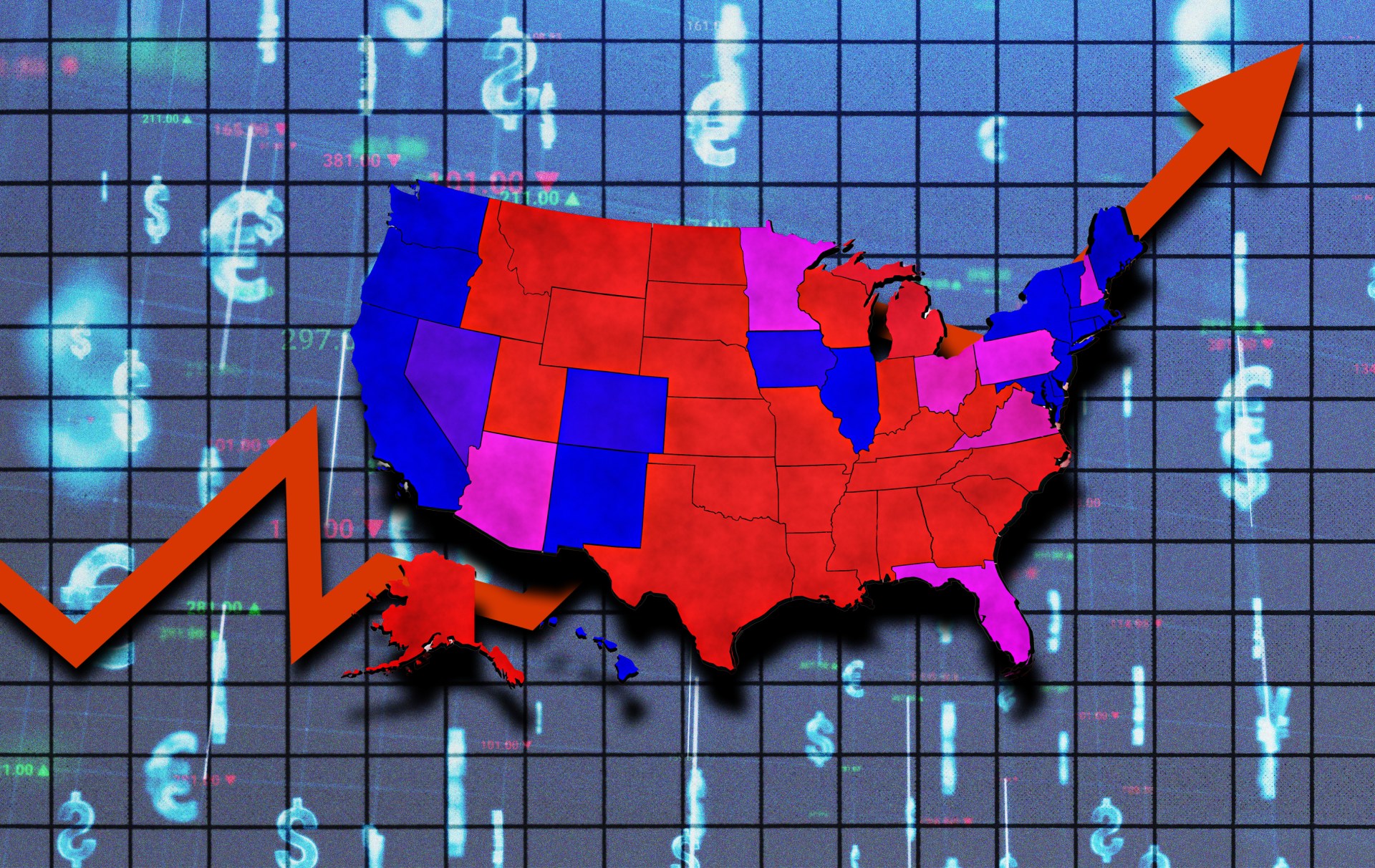The plan from Republicans in Texas to redraw congressional maps in a way that would likely hand the GOP an additional three to five seats in the House of Representatives has sparked a fierce backlash from Democrats nationwide—with California Gov. Gavin Newsom leading the charge.
As the governor of the most populous state in the country, Newsom has been threatening to respond to Texas with his own plan to redraw California’s map in a way that could hand Democrats an additional five seats in the House. “CALIFORNIA WILL NOW DRAW NEW, MORE 'BEAUTIFUL MAPS,' THEY WILL BE HISTORIC AS THEY WILL END THE TRUMP PRESIDENCY,” Newsom wrote on Tuesday, in a social media post mimicking Trump’s style.
But Newsom’s bark may be worse than his bite. A 2010 proposition that voters passed 61 percent to 39 percent established a bipartisan commission for drawing congressional maps, and that means California Democrats would need a new referendum to hand power to the legislature and Newsom to redraw the maps. A new Politico poll released on Thursday shows that California voters support keeping the independent commission by two-to-one margin.
It’s possible that after millions of dollars of advertising, voters in the overwhelmingly Democratic state could change their minds. But that’s far from guaranteed. “The voters made this choice, twice, to take redistricting out of the legislature’s hands and create a bipartisan, totally independent redistricting committee,” Ken Miller, a political scientist at Claremont McKenna College and head of the Rose Institute of State and Local Government, told The Morning Dispatch. “If at the drop of a hat, the majority party tries to overturn that, it basically decimates the whole process of independent redistricting.”
—John
Top Stories From the Dispatch Politics Team
Texas GOP legislators recently unveiled a new proposed map for the U.S. House districts in their state that could result in Republicans winning more House seats in 2026. The redistricting process typically plays out right after each decennial census, and the unusual mid-decade redistricting move by Republicans prompted Texas Democrats to flee the state in an attempt to deny GOP leaders a quorum necessary to conduct legislative business and thus block the new maps from becoming law. So, what does this mean for Texas? How might blue states respond? And what does it all mean for the 2026 midterm elections and beyond?
The trade deals keep coming in, and the president is thrilled. “It’s certainly the biggest trade deal ever made,” boasted Donald Trump about his administration’s framework agreement with the European Union to set a 15 percent rate on all imports between two of the world’s largest economic powerhouses. That’s up from the roughly 1 percent average tariff rate in place before Liberation Day but down from the 30 percent Trump threatened the EU with earlier this year. Like many of the deals Trump has made ahead of today’s drop-dead date on reimplementing tariffs on imports, the devil is in the details.
Congressional Republicans and the Justice Department have launched investigations into Biden’s practice of utilizing an autopen to sign pardons, commutations, and other official documents, part of an effort to prove his age impaired his ability to make decisions. But a review of congressional expenditure reports by The Dispatch shows that both Republican and Democratic members of Congress have in recent years made payments to companies that produce automatic signature tools, suggesting autopens are a popular labor-saving tool on Capitol Hill.
Candidates running for office this year and next are focusing specifically on “affordability,” a broader economic issue distinct from jobs, wages, and, more recently, inflation. Whether it’s Democrats like New York City’s socialist mayoral candidate Zohran Mamdani or centrist Virginia gubernatorial nominee Abigail Spanberger, or Republicans like New Jersey gubernatorial nominee Jack Ciattarelli or New Hampshire Senate contender Scott Brown—along with others on the ballot this year or next—“affordability” is dominating the campaign trail.* Housing seems to be a key driver of voters’ anxiety, but Democratic and Republican strategists agree the unease extends beyond high rents and expensive mortgages.
Enjoying our Dispatch Politics Roundup? Consider forwarding this article to someone you know who likes independent, fact-based journalism.










Please note that we at The Dispatch hold ourselves, our work, and our commenters to a higher standard than other places on the internet. We welcome comments that foster genuine debate or discussion—including comments critical of us or our work—but responses that include ad hominem attacks on fellow Dispatch members or are intended to stoke fear and anger may be moderated.
With your membership, you only have the ability to comment on The Morning Dispatch articles. Consider upgrading to join the conversation everywhere.